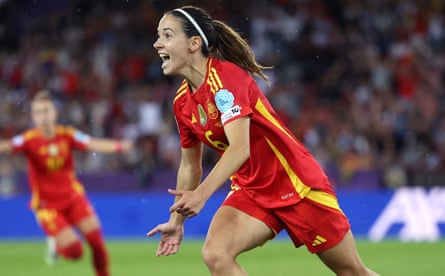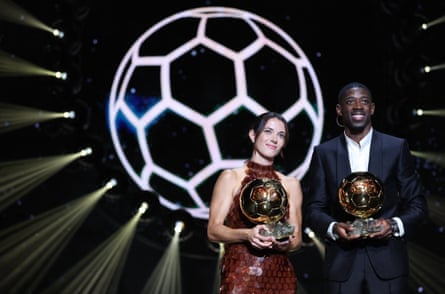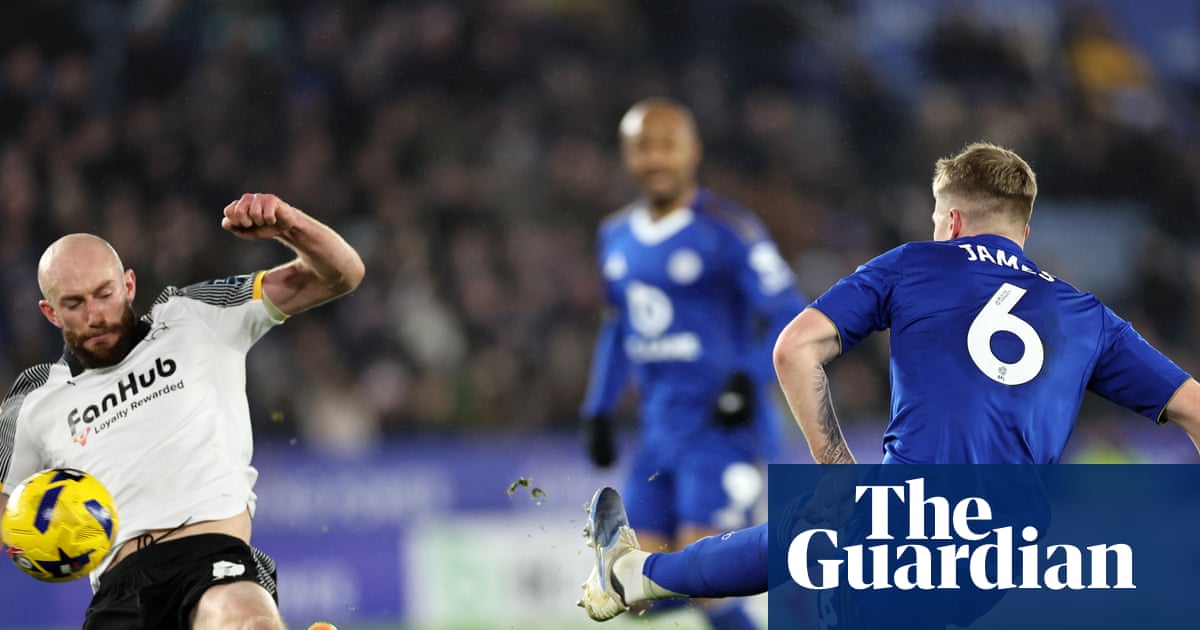Winning one Ballon d’Or is the mark of footballing greatness, winning two puts you in a very exclusive group of greats, but winning three in a row? That gives 27-year-old Aitana Bonmatí footballing immortality. The Barcelona and Spain midfielder has become the first woman, and only the third player overall, alongside Lionel Messi and Michel Platini, to have achieved this feat. What exactly sets her apart?
Born and raised in Catalonia, Bonmatí joined Barcelona’s famed La Masia academy at 13, soaking up a philosophy of technical excellence and football intelligence that would shape her career. By 16, she was already in the senior side, modelling her game on legends such as Xavi and Andrés Iniesta.
Her talent was unmistakable from the outset. She helped Barça reach their first Women’s Champions League final in her first full season, in 2018-19, when she racked up an impressive 21 goal contributions in all competitions. Lyon won that final but Barcelona and Bonmatí came back stronger two years later. Aged just 23, Bonmatí truly announced herself to the football world by delivering a player of the match performance as Barcelona crushed Chelsea 4-0 to lift their first Champions League title.
Her rise to the top has been relentless. Her list of achievements reads like the career of a once-in-a-generation player: five league titles, six Copas de la Reina, five Supercopas and three Champions Leagues – including three trebles – for Barcelona. Add to that three consecutive Ballon d’Or awards, back-to-back Fifa Best honours, three Champions League player of the season awards, and being named the player of the tournament at Euro 2025, and it’s clear Bonmatí is in rarefied company.

What separates Bonmatí from the rest is her complete mastery of midfield. Her awareness, scanning and anticipation allow her to read the game like few others. Her acceleration, touch and close control enable her to navigate tight spaces effortlessly. Her intelligence, combined with the ability to execute la pausa – the perfect subtle pause to pick the ideal pass – help her stay a step ahead of opponents.
As her idol Xavi noted: “She reminds me of me, because we understand football the same way. Football’s about using your brain. If you put talent up against physicality, talent will always win, because that’s the essence of football.” Bonmatí is not a physically imposing figure at just 5ft 4in but, what she lacks in size, she more than makes up for in her footballing intelligence.
She sets the rhythm of the game, both defensively and offensively. Her head is always moving as she anticipates the next phase of play before it happens. She identifies potential gaps, ghosts into space, receives the ball in dangerous areas, and can carve open defences before her opponents have time to act.
She finished last season with 15 goals and 12 assists, but Bonmatí is more than just an asset in the final third. She does not ignore her defensive duties. “I decided that, if I wanted to be a complete player, I had to do those things also,”” she says. “Not only score and make assists but also do defensive tasks to help the team.” Her ability to read the game translates defensively, making her the modern manager’s counter-pressing dream. In the Champions League last season, she ranked fifth for the number of ball recoveries (63). She doesn’t just chase the ball in vain; she cuts off passing lanes when her side is pressing, recovering the ball, and transitioning into attack.
Like Xavi and Iniesta, Bonmatí’s greatness lies in her understanding of the game. No matter the tactics the manager deploys, the way the opposition plays, the situation her side finds itself in, Bonmatí’s intelligence, tactical awareness and fluent understanding of the game allow her to adapt. “She thinks so quickly,” said the Sweden defender Magdalena Eriksson after coming up against Bonmatí. “If I went to challenge her, she would find a way to exploit that. She makes everyone around her better as well with her decision-making and her awareness of when to speed up the game or to slow it down.”

Bonmatí’s influence extends beyond her technical and tactical brilliance. Her Barcelona and Spain teammate, Ona Batlle, calls her “a leader, especially on the field, where she demonstrates it the most. She is considered the brain and nerve of the team.”
Time and again, Bonmatí has risen when her side needed her most. That leadership was clear to see in 2023, when she guided Spain to their first World Cup triumph and claimed the Golden Ball. It was on display again at Euro 2025, where she produced one of the defining moments of her career: an audacious extra-time winner against Germany in the semi-final, just weeks after being hospitalised with viral meningitis, on her way to being named player of the tournament.
As Bonmatí claims her third successive Ballon d’Or, the question we should be asking is how many more she can win. At 27, her peak may be yet to come. With five goals and an assist already this season in just four games, Bonmatí might just be mounting a charge for her fourth.
This is an article by WhoScored

 3 months ago
51
3 months ago
51

















































